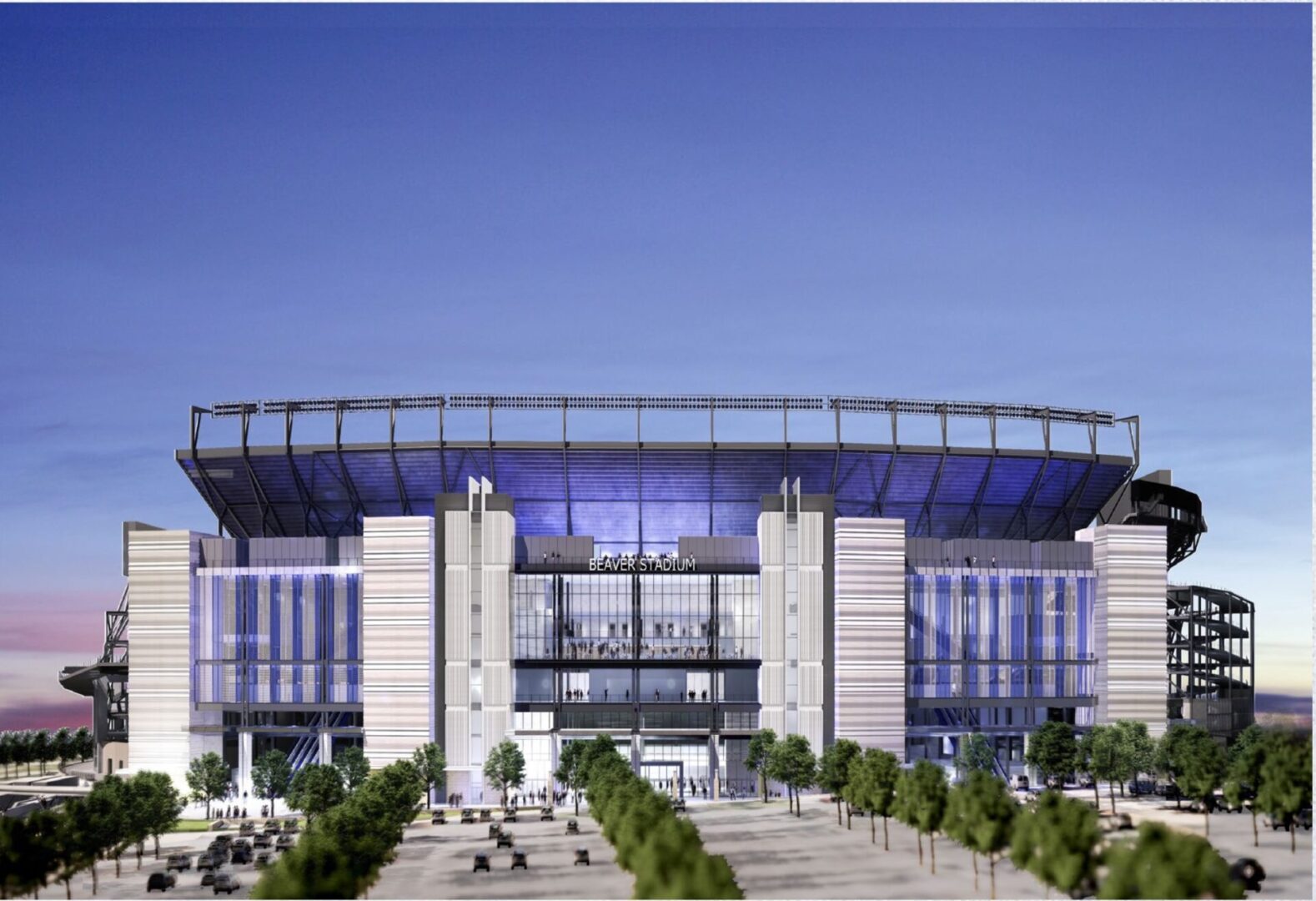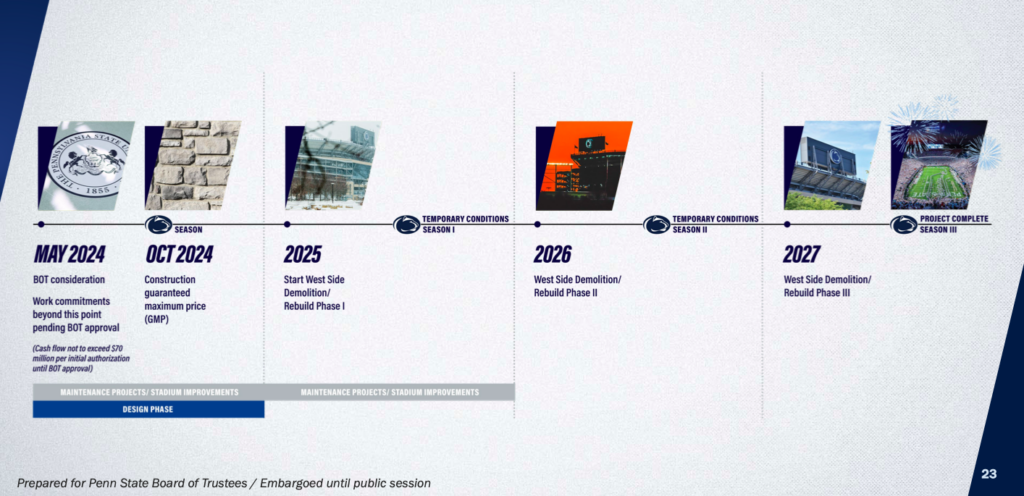The Penn State Board of Trustees voted 26-2 (with three abstentions) on early Tuesday afternoon to approve the remaining $630 million in funding needed for the Beaver Stadium renovation project slated to be completed in August of 2027.
Total project costs will not exceed $700 million, with $70 million of that having already been approved by the board last May. According to administrators, the current projected budget sits at $664 million. Penn State athletics would be required to return to the board for approval of any funding that exceeds $700 million.
The project will be paid for entirely by athletics and will not use any tuition funding. More about the economics of the plan can be read here.
Numbers aside, Penn State offered more insight into some of the actual changes and upgrades that Beaver Stadium will experience over the course of the project, which is being designed by architecture firm Populous. Broadly, the renovations will including improved circulation, new restrooms, upgraded concession offerings, Wi-Fi, and additional premium seating options. The west side of the stadium (the one closest to campus) will be the main focus of most of the structural changes.
“[Some of the work will begin in] 2025 and includes removing the press box and the top half of the left side and building a superstructure in its place to include suites and club seating with temporary bleachers installed during the estimated two seasons during which a structure will be built,” Penn State Vice President for Intercollegiate Athletics Pat Kraft said. “In 2026, the third phase would begin, which will include removing all lower bowl seating [on the west side] and replacing it with club seating. The goal would be to complete all phases by 2027.”

More specifically to the infrastructure of the stadium, Penn State athletics noted in its presentation to the Board of Trustees that the current plan calls for the addition of 24 elevators, 12 escalators (some of which will be on the east side of the stadium), four additional stair towers, a 15% increase in bathrooms and a 70% increase in concession “points of sale.” Concourses will also be substantially widened.
As it pertains to seating, loge boxes and premium suites are the main addition to the stadium’s west side.
The project also includes a new 21,000-square-foot welcome center for events and other uses, such as student recruitment of both athletes and non-athletes alike.
“Many recognize Beaver Stadium as the best stadium in college football, and we want to preserve the atmosphere that our fans, alumni and community have come to expect while building on this history of excellence for generations to come,” said Penn State president Neeli Bendapudi “The renovations will have a wide variety of positive impacts on our community, help us remain a national leader by attracting top student-athletes and continue serving as a symbol for belonging and pride for students across the Commonwealth.”
Some ongoing projects related to the installation of a new super ribbon scoreboard and the winterization of the stadium have already long been underway and are folded into the initial $70 million approval. Substantial construction on the west side renovation is anticipated to begin in January 2025.

“On behalf of the Board of Trustees, I am delighted to share there is overwhelming support for the University’s recommendation to renovate Beaver Stadium,” said Board of Trustees Chair Matt Schuyler. “I’m pleased that the renovation will benefit our student-athletes, elevate Beaver Stadium’s significance in driving local and state economies, and ensure Beaver Stadium remains a premier facility in all of college athletics.”



